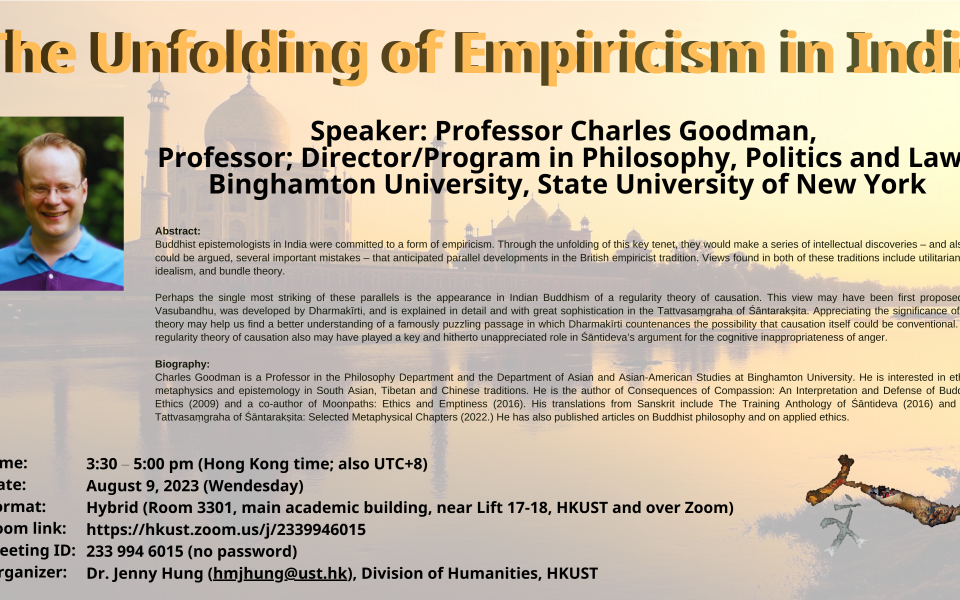Abstract :
Buddhist epistemologists in India were committed to a form of empiricism. Through the unfolding of this key tenet, they would make a series of intellectual discoveries – and also, it could be argued, several important mistakes – that anticipated parallel developments in the British empiricist tradition. Views found in both of these traditions include utilitarianism, idealism, and bundle theory.
Perhaps the single most striking of these parallels is the appearance in Indian Buddhism of a regularity theory of causation. This view may have been first proposed by Vasubandhu, was developed by Dharmakīrti, and is explained in detail and with great sophistication in the Tattvasaṃgraha of Śāntarakṣita. Appreciating the significance of this theory may help us find a better understanding of a famously puzzling passage in which Dharmakīrti countenances the possibility that causation itself could be conventional. The regularity theory of causation also may have played a key and hitherto unappreciated role in Śāntideva’s argument for the cognitive inappropriateness of anger.
Biography:
Charles Goodman is a Professor in the Philosophy Department and the Department of Asian and Asian-American Studies at Binghamton University. He is interested in ethics, metaphysics and epistemology in South Asian, Tibetan and Chinese traditions. He is the author of Consequences of Compassion: An Interpretation and Defense of Buddhist Ethics (2009) and a co-author of Moonpaths: Ethics and Emptiness (2016). His translations from Sanskrit include The Training Anthology of Śāntideva (2016) and The Tattvasaṃgraha of Śāntarakṣita: Selected Metaphysical Chapters (2022.) He has also published articles on Buddhist philosophy and on applied ethics.
Zoom link: https://hkust.zoom.us/j/2339946015
Meeting ID: 233 994 6015 (no password)
(All are welcome! No registration required.)
Dr. Jenny Hung (hmjhung@ust.hk), Division of Humanities, The Hong Kong University of Science and Technology
